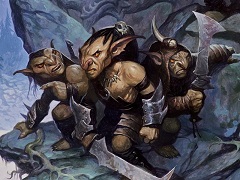Video Gamer is reader-supported. When you buy through links on our site, we may earn an affiliate commission. Prices subject to change. Learn more
Right, so I’m all about tabletop roleplaying games and I’d love it if all of you started playing them as well. Trouble is, if you do, there’s a higher chance that I’ll run into one of you lot, so right out of the gate I need to make sure you don’t f*** up my game by being an asshole roleplayer. So here’s how to not be that asshole roleplayer.
/https://oimg.videogamer.com/images/8280/shadowrun_combat.jpg)
Don’t backseat GM
You know how when you’re playing a game and someone else is there in the room and they do an elaborate sigh whenever you f*** up, or tell you how you should be doing it? Remember how that’s the worst thing in the entire world, various genocides included? Now imagine that’s happening but instead of your mate sitting next to you it’s the one of the characters in the game.
Your Games Master is trying their damndest to run the game well, and if they want your help cross checking anything they’ll ask for it. Arguing about something that’s happened to your character only holds everything up and spoils the flow of the game. If you have a grievance the correct procedure is to have a quiet word with your GM afterwards, in the same way a middle manager would explain to a concierge that the young lady in his hotel room is definitely his sister from out of town – slightly apologetic, but still going through with it.
You are not the protagonist
When you’re playing a video game you’re usually the most important, fantastical, amazing person on the entire planet. Only you can save mankind, or elfkind, or dwarfkind, or the entire universe or whatever. You can be a douchebag on an elemental level (Db, atomic weight of 69) to everyone you meet and they’ll still bow and scrape to you because it’s better than the entire population being flayed by demons. You are the main character. The story is all about you.
This is not the case in a tabletop RPG. You’re working in a team, and, crucially, each of them is controlled by a real person, not a bundle of code programmed to fall in love with you if you give them enough Carved Dog Statues and Silver Bracelets. You’re going to have to share screen time.
If you have a good GM then they’ll make sure everyone gets their turn feeling/being cool, but this means that when your turn is finished you have to wait for it to come around again; don’t elbow in on someone else kicking ass because you’re missing the limelight. You’re not that important. Even if your character dies you roll a new one and the game will continue without them. Which leads me neatly to my next point.
/https://oimg.videogamer.com/images/57bd/dungeons_and_dragons_party.jpg)
Good roleplaying doesn’t mean always winning
In some cases you’ll have laid great plans, based on the current weather patterns in game, routes in and out from your objective, the patrol routes of guards and so on. These plans will often go awry. It’s fine to be disappointed, but it’s how you deal with it that matters.
I was in a game of Shadowrun recently where my friend James’ character was about to be betrayed (spectacularly) by another player’s character. James knew this, but his character didn’t. James took the hit, because that’s what you’re supposed to do.
This is an example of a conflict between what’s called player knowledge and character knowledge, i.e. you might know your character is f***ed, but they don’t. Since James was in control of his character it would’ve been easy for him to use his player knowledge to get out of trouble, but that’s the opposite of how these games are supposed to work. If you do that kind of thing then everyone else in the game will never want to play with you again, because you’re inhuman, cheating scum.
Don’t take any of it personally
Although James’ character survived that particular betrayal, he could have died. You need to accept the possibility of your character biting it because it’s pretty likely to happen in the end; the annihilation of your whole party is, in a roundabout way, what your GM is aiming for. It’s always a very sad occasion because this character is a part of you in a way that no one can understa- oh wait. I just remembered it doesn’t matter what happens to your character, because none of it is f***ing real.
It’s obviously a bit of a downer if anyone dies but it’s also basically irrelevant, because the character wasn’t you. My first ever character died when I walked her blindly into a trap (full disclosure: she noticed the trap on the floor but didn’t think it looked unusual so just stepped right into it).
This is also why you shouldn’t get angry at other players if their character is a dick to your character, or, to put it another way, if their imaginary avatar says nasty things to your imaginary avatar in a totally imaginary setting.
